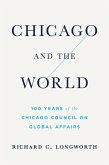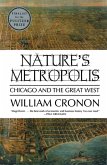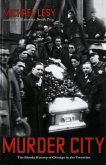In this sweeping interpretive history of mid-nineteenth-century Chicago, historians John B. Jentz and Richard Schneirov boldly trace the evolution of a modern social order. Combining a mastery of historical and political detail with a sophisticated theoretical frame, Jentz and Schneirov examine the dramatic capitalist transition in Chicago during the critical decades from the 1850s through the 1870s, a period that saw the rise of a permanent wage worker class and the formation of an industrial upper class._x000B__x000B_Jentz and Schneirov demonstrate how a new political economy, based on wage labor and capital accumulation in manufacturing, superseded an older mercantile economy that relied on speculative trading and artisan production. The new social movements that arose in this era--labor, socialism, urban populism, businessmen's municipal reform, Protestant revivalism, and women's activism--constituted the substance of a new post-bellum democratic politics that took shape in the 1860s and '70s. When the Depression of 1873 brought increased crime and financial panic, Chicago's new upper class developed municipal reform in an attempt to reassert its leadership. Setting local detail against a national canvas of partisan ideology and the seismic structural shifts of Reconstruction, Chicago in the Age of Capital vividly depicts the upheavals integral to building capitalism.
Dieser Download kann aus rechtlichen Gründen nur mit Rechnungsadresse in A, D ausgeliefert werden.









